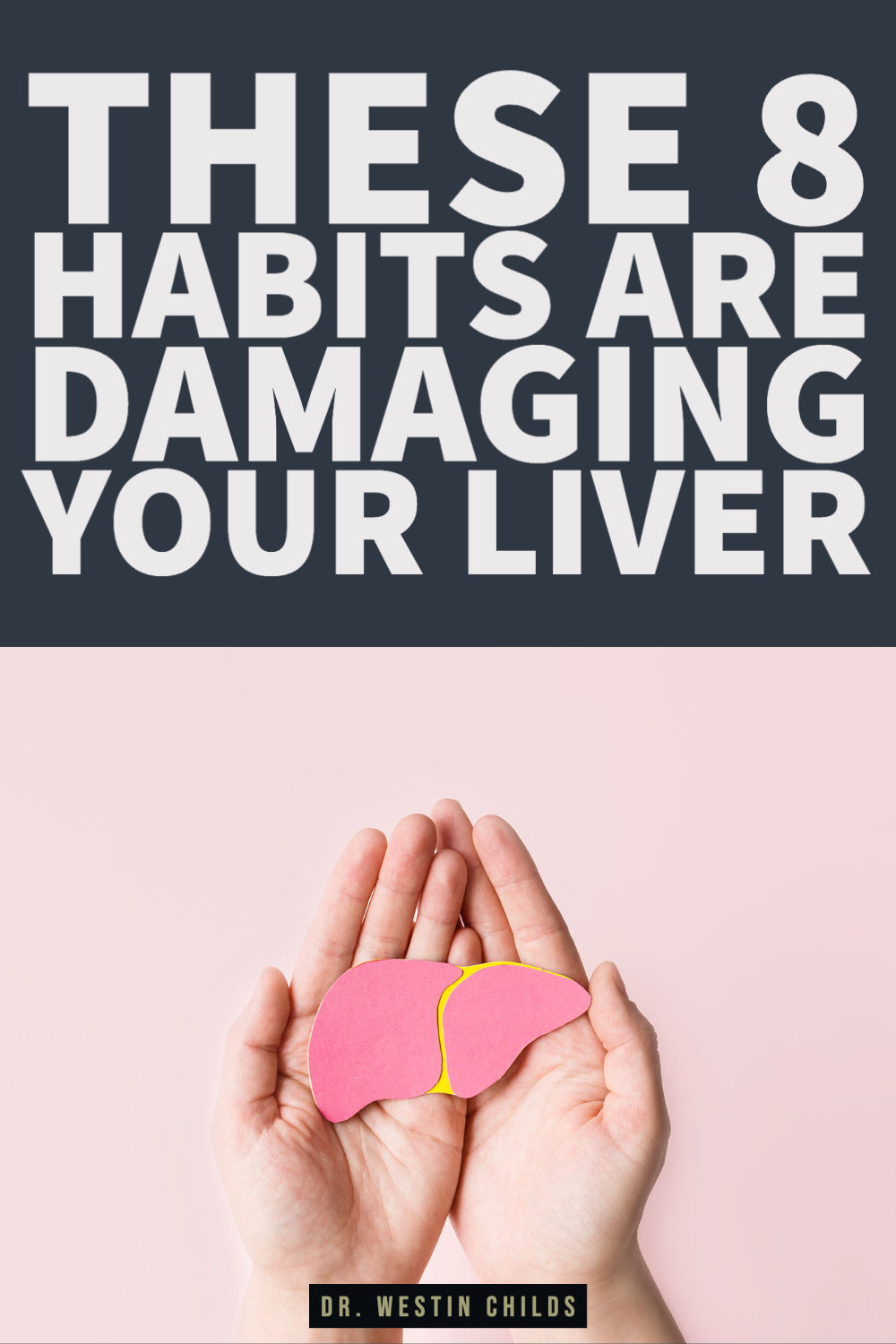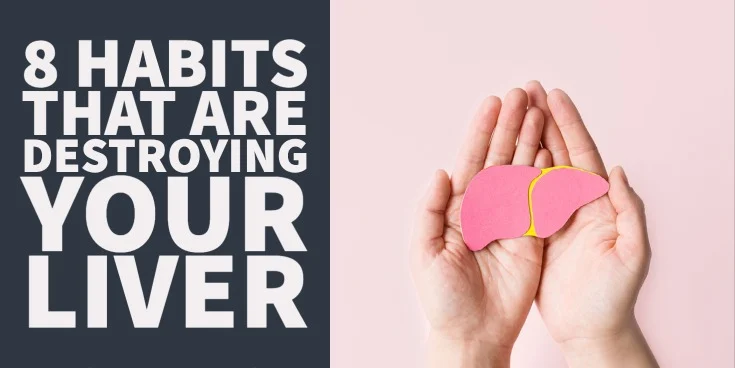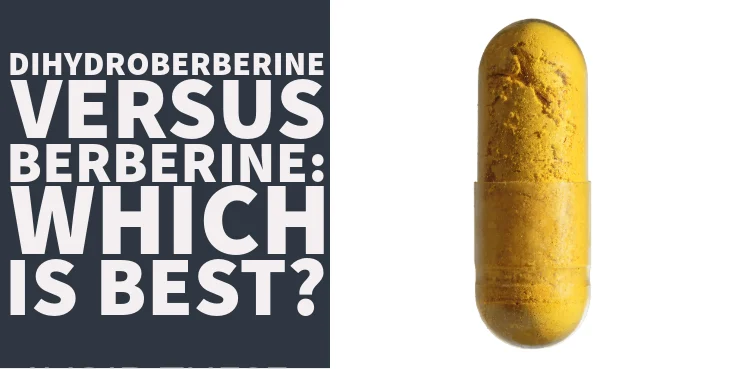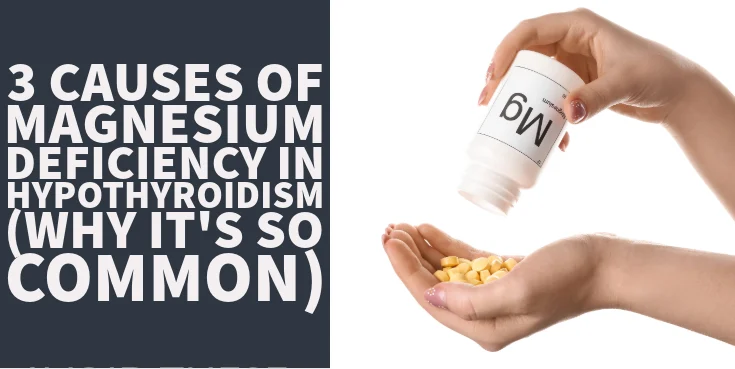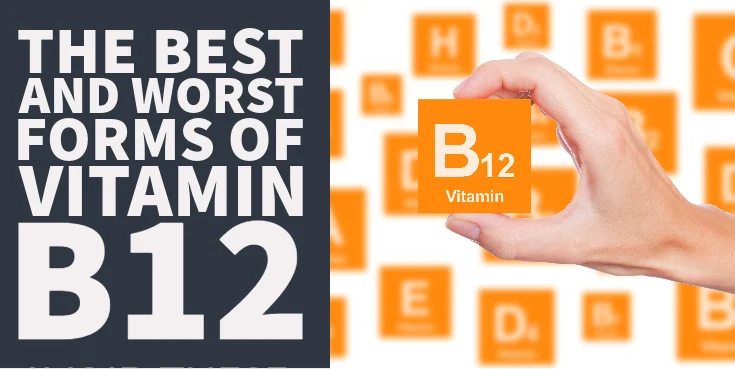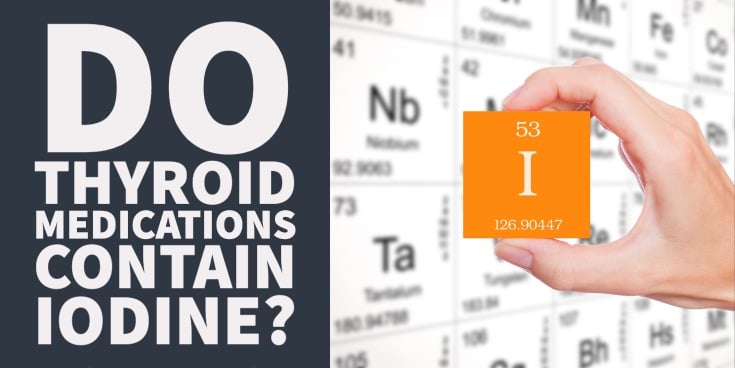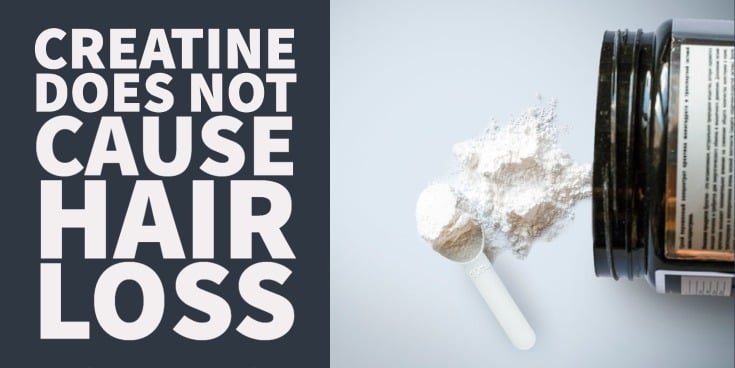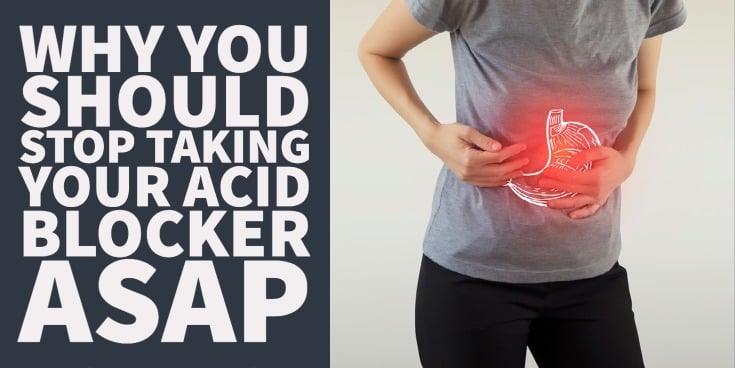Your liver is one of the few organs in your body that has the ability to regenerate or grow back.
Most of the time, when tissue in your body dies, it’s dead forever.
Even the Greeks knew about the liver’s ability to regenerate which is why they have the story of Prometheus (1) who was punished for giving fire to man.
Because of this, he was chained to a rock, and every single day an eagle would come and eat part of his liver, and every single night it would grow back.
And as the story goes, this cycle is repeated forever.
But guess what, just because your liver can grow back doesn’t mean you should treat it like crap!
Your liver is easily one of the most important organs in your body.
It’s responsible for storing vitamins and minerals, activating hormones (like your thyroid), producing life-giving cholesterol, converting building blocks into different forms of energy, regulating amino acids, clearing drugs and poisonous substances from your body (2), and so much more.
You can’t live without a liver and, whether you realize it or not, you’re probably damaging it.
And that’s too bad because you want your liver to be healthy if you want to live an optimal life.
Let’s talk about 10 habits that you are probably doing that are destroying your liver slowly.
DOWNLOAD FREE RESOURCES
Foods to Avoid if you Have Thyroid Problems:
I’ve found that these 10 foods cause the most problems for thyroid patients. Learn which foods you should avoid if you have thyroid disease of any type.
The Complete List of Thyroid Lab tests:
The list includes optimal ranges, normal ranges, and the complete list of tests you need to diagnose and manage thyroid disease correctly!
#1. Alcohol Intake
It’s best to think of alcohol as a toxin to your liver.
And you need far less than you probably think to cause damage.
One binge drinking session is enough to trigger fatty liver accumulation and inflammation.
And while binge drinking is bad, chronic daily consumption is even worse.
Prolonged alcohol use blocks the export of fat from the liver which directly leads to fatty liver.
This may lead to alcoholic hepatitis and, eventually, an irreversible condition called cirrhosis.
And, believe it or not, cirrhosis from alcohol consumption is one of the most common reasons for a liver transplant!
A dose as small as 30 grams a day for 10 years dramatically increases your risk of developing liver problems (3).
For perspective, 30 grams is the equivalent of two and ⅓ shorts of hard alcohol a day.
Some health advocates and doctors will say that mild consumption of alcohol is okay but if you are trying to optimize your health then I would recommend staying away from it 100%.
Whatever small benefits you may obtain from something like a small dose of wine each day can be easily made up for by eating other nutrient-dense foods or improving your sleep.
I don’t buy the argument that drinking wine improves longevity and there are much better ways to improve your overall health if that’s your goal.
Eliminating alcohol from your diet will improve your overall health, has the potential to help you lose weight, balance blood sugar, improve your cholesterol, and help you get better sleep.
#2. Eating Too Much Sugar
Notice I said too much!
I’m a big fan of natural sources of sugar like fruits and vegetables but there’s no question that eating excessive amounts of processed sugar can cause liver problems.
The real issue here isn’t sugar so much as it is fructose.
Similar to alcohol, fructose must be metabolized by the liver and too much of it blocks the export of fat (4).
And just like alcohol, too much sugar can lead to fatty liver and all of the other problems I mentioned previously.
Sadly, non-alcoholic fatty liver is becoming one of the most common causes of liver transplant and, just like alcohol, it can be avoided.
The two WORST things you can do to your liver are 100% within your control and are 100% preventable.
Some gurus, especially those in the carnivore and keto space, suggest that all carbohydrates and sugars should be avoided and they cite this very problem as the reason.
But this isn’t the case.
Your liver was designed to process sugar and fructose, just not too much of it.
The issue isn’t necessarily the consumption of fructose but the dose that you are taking.
Eating 3-5 servings of fruit every day isn’t going to cause non-alcoholic fatty liver (5), but drinking several 44-ounce big gulps probably will.
There’s a big difference between these two sources of fructose.
Don’t be scared of sugar, but definitely respect it for the potential damage that it can cause to your liver.
And at least one study has shown that you can cut back on refined and processed sugars while still consuming natural sugar in fruits, and still see metabolic benefits.
The bottom line is that foods with ADDED Sugar should be avoided, but feel free to consume healthy whole foods that naturally contain sugars built into them.
Using this rule, an apple would be fine, but a can of pasta sauce with added sugar would not be.
#3. Taking Too Many Prescription Medications
EVERYTHING, and I mean everything, must be broken down and metabolized by your liver and this includes prescription medications.
Your liver takes these compounds and turns them into water-soluble substances that can then be eliminated by your kidneys.
The enzymes that do the bulk of the work here is a family of enzymes known as cytochrome p450 (6).
And even though these enzymes are pretty darn good at what they do, you can overwork them.
If multiple medications use the same enzyme for their metabolism, they can start to build up in your body and result in liver damage or damage to other tissues.
It’s not usually the case that medications result in liver damage directly, but they can clog up the system so to speak.
This is why, by the way, doctors often tell patients taking certain medications to avoid grapefruit juice.

Grapefruit juice blocks certain enzymes (7) which causes medications to build up in your system and may result in toxicity.
A couple of medications here and there won’t be an issue but my recommendation is to use lifestyle factors to eliminate as many medications as you possibly can.
When you look at the top 5 most commonly prescribed medications, 4 of them are prescribed for conditions that can be treated naturally with diet, exercise, and lifestyle changes!
It’s a far better use of your time to improve your lifestyle so you can get off of these medications instead of worrying about their impact on your liver.
#4. Using Too Many Supplements
I’m a huge fan of supplements and even formulate my own for people with thyroid and weight problems so I hate to say it, but…
Taking too many supplements can definitely cause liver problems.
This is especially true of certain botanical or plant-based compounds.
I remember seeing a patient in residency who came in with acute liver problems that looked like an aggressive case of liver cancer.
When she was admitted we took her off all of her medications and supplements and within a few days her liver was completely back to normal.
This blew us all away and the only potential cause that we could find for this were herbal supplements she started taking a few weeks ago for weight loss.
This isn’t meant to scare you away from taking supplements but, instead, highlights just how effective they can be both when they are used correctly and when they are used incorrectly.
There’s a reason that certain supplements have recommended doses and a reason that they undergo testing prior to being recommended to people.
As long as you stick to standard dosing and to products that are manufactured in the United States under GMP guidelines you should be fine.
But it’s still a good idea to limit how many supplements you are taking.
If your total supplement stack is getting above 10 supplements a day, it’s probably time to cut some of those out and try to get more nutrients from food instead.
#5. Having Unsafe Sex
How does having sex relate to your liver?
Because Hepatitis A, B, and C can all be sexually transmitted (8)!
These viruses are incredibly damaging to the liver and all have the potential to cause temporary or permanent liver damage if not treated.
Doctors do a pretty good job at catching these viruses early but it’s still a very good idea to reduce your risk of contracting them by practicing safe sex and limiting your number of sexual partners.
Your liver will thank you!
#6. Not Exercising Enough
Exercise is obviously beneficial for your entire body but it’s especially important for your liver for 3 reasons:
The first is that it increases fatty acid oxidation, decreases fatty acid synthesis, and prevents both mitochondrial and hepatocellular damage (9).
This is just a fancy way of saying exercise helps your liver to function better and protects it.
The second is that it promotes better insulin sensitivity which allows reduces the delivery of excess sugar to the liver.
It also helps to treat conditions like diabetes and high blood sugar.
And the third is that exercise stimulates lymphatic flow and promotes detoxification of potentially harmful contents through the sweat.
To get these benefits make sure that your exercise is intense enough to cause you to sweat and long enough to have a stimulating effect on your muscles.
Exercising 3-5 times per week for at least 20 to 30 minutes will do the trick.
#7. Taking Too Much Vitamin A
High doses of vitamin A are considered a toxin to your liver.
This is because the liver acts as a storage center for vitamin A.
This is also why, by the way, eating liver from animals is one of the ways to naturally get vitamin A into your diet.
You don’t really have to worry about vitamin A toxicity from supplements, though, if you are just using standard everyday multivitamin doses.
But it can be a real issue if you are using a super concentrated vitamin A supplement and combining that with a high intake of vitamin A-rich foods like liver.
This problem can also occur with high-dose vitamin A found in certain prescription medications.
For instance, the medication tretinoin, which is used to treat acne in teenagers, can cause liver toxicity and liver damage (10).
This is why patients taking this medication need to have routine liver tests!
#8. Taking Too Much Tylenol
Probably one of the scariest on this list is Tylenol.
And that’s because Tylenol is super EASY to get, and incredibly toxic to your liver in high doses, very few people are aware of its negative impact on the liver.
This trifecta is a perfect setup for Tylenol-induced liver damage in certain patients, especially those with chronic pain who take Tylenol multiple times per day.
The maximum daily intake of Tylenol should not exceed 4,000mg per day.
For context, 2 extra strength Tylenol contains 1,000mg. So you shouldn’t take more than 8 extra strength Tylenol every day.
How much does it take to damage your liver? Not as much as you’d think.
Taking as little as 7,000 mg per day, or 14 capsules of extra-strength Tylenol, is enough to cause severe symptoms.
Ever wonder why Tylenol bottle caps, especially for children are so hard to open? It’s because of this.
Tylenol is probably one of the most potentially toxic compounds for liver health found in the grocery store (11).
Recap
- Your liver is one of the most important organs in your body and, even though it has some regenerative capacity, it can become damaged.
- When damaged, you will experience negative and unwanted symptoms as your liver is unable to keep up with its role as the filter of your body.
- You can easily improve your liver health by avoiding toxic compounds that must be filtered through your liver and by putting in healthy compounds that help your liver function.
- A healthy liver means a healthy life!
Now I want to hear from you:
Were you aware of all of the ways that you could unknowingly and accidentally damage your liver?
Do you have any known liver problems or do you suspect any?
Have you had your liver function tested recently? Were your liver markers elevated?
Are you planning on making any changes to your lifestyle after reading this?
Leave your questions or comments below!
Scientific References
#1. pubmed.ncbi.nlm.nih.gov/30212020/
#2. ncbi.nlm.nih.gov/books/NBK535438/
#3. ncbi.nlm.nih.gov/books/NBK546632/
#4. nih.gov/news-events/nih-research-matters/how-high-fructose-intake-may-trigger-fatty-liver-disease
#5. pubmed.ncbi.nlm.nih.gov/30710884/
#6. ncbi.nlm.nih.gov/pmc/articles/PMC4931891/
#7. ncbi.nlm.nih.gov/pmc/articles/PMC3589309/
#8. cdc.gov/hepatitis/populations/stds.htm
#9. ncbi.nlm.nih.gov/pmc/articles/PMC5954622/
#10. ncbi.nlm.nih.gov/books/NBK548568/
#11. ncbi.nlm.nih.gov/pmc/articles/PMC5696016/
